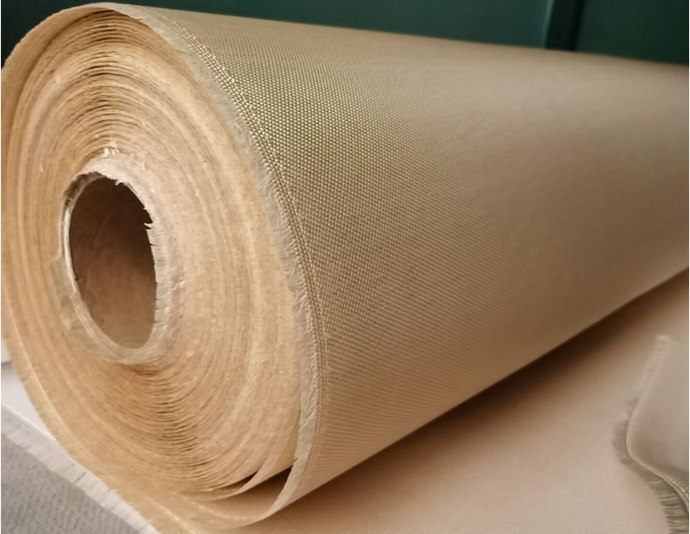Fireproof fabric is a specialized fabric engineered to withstand high temperatures and prevent the spread of fire, safeguarding people and objects from hotspots and spark zones. It effectively blocks the ignition and spread of flames, providing crucial protection in various scenarios, such as protective clothing, interior decoration, and specialized industrial environments like chemical, welding, and cutting.
In welding, cutting, and other spark-producing situations with a high fire risk, fireproof fabric plays a vital role. It resists spark splashes, slag, and welding spatters, isolating the workspace, separating work layers, and minimizing the potential fire hazards associated with welding, cutting, and other operations. This helps establish a safe, clean, and compliant working environment.
Fireproof fabric is also an ideal safety tool in the field of fire protection. It is commonly used during hot work, such as welding and cutting, in large shopping malls, supermarkets, hotels, and other public entertainment venues.

Key Characteristics of Fireproof Fabric:
- Exceptional weather resistance.
- Excellent light transmittance.
- Resistance to chemical corrosion, acids, alkalis, aqua regia, and other corrosive substances.
- Low friction coefficient, making it an ideal choice for oil-free self-lubrication.
- High insulation performance, UV resistance, and antistatic properties.
- Good light transmittance and non-stick surface, preventing the adhesion of substances.
Materials and Types of Fireproof Fabric:
Fireproof fabric is typically composed of a blend of organic fibers, such as polyester, acrylic, and cotton, and inorganic fibers, including rock wool and aluminum silicate fibers.
The variety of materials used in fireproof fabric is extensive, with common options including fiberglass, asbestos, chemical fibers, ceramic, basalt, and polyester. Through further processing, these materials can be classified into three types of non-stick fabrics: silicone tape, silicon-titanium cloth, nano cloth, coated cloth, and resin cloth.
Applications of Fireproof Fabric:
- Electrical insulation: It offers a high electrical insulation level, enabling the production of insulating cloth, sleeves, and other products.
- Non-metallic compensators: Silicone fabric serves as a flexible connection device for pipelines, addressing the damage caused by thermal expansion and contraction. It exhibits high temperature resistance, corrosion resistance, anti-aging properties, good elasticity, and flexibility, finding wide application in the petroleum, chemical, cement, and energy sectors.
- Anti-corrosion: Silicone rubber-coated fiberglass cloth functions as an internal and external anti-corrosion layer for pipelines and storage tanks, boasting excellent anti-corrosion performance and high strength, making it an ideal anti-corrosion material.
- Other fields: Silicone rubber-coated fiberglass membrane structural materials can be utilized in building sealing materials, high-temperature anti-corrosion conveyor belts, packaging materials, and more.
- Fireproof curtains: It can be employed as a fireproof curtain.


